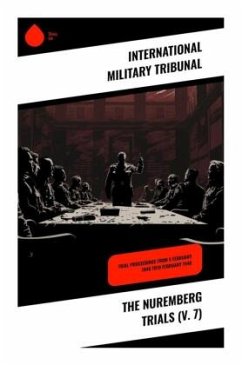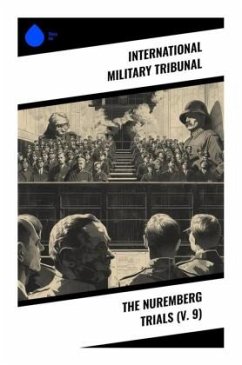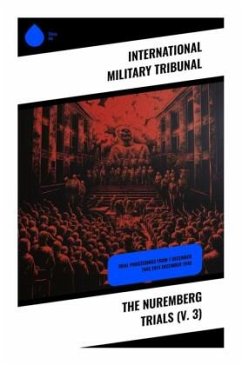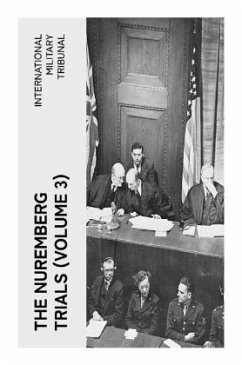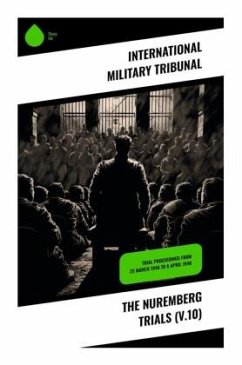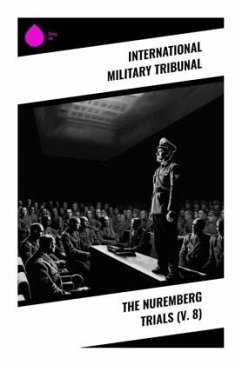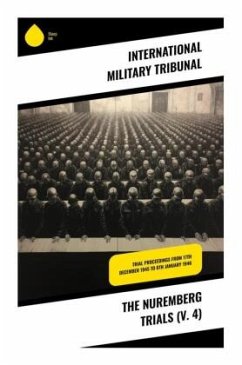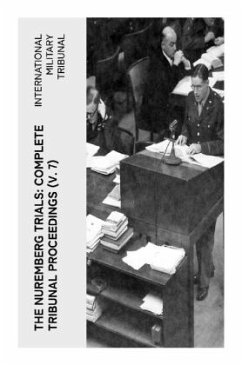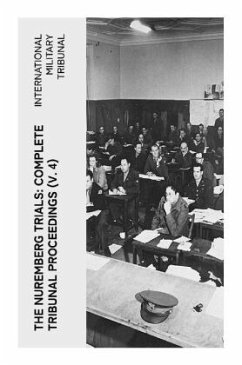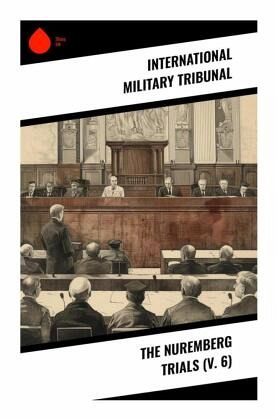
The Nuremberg Trials (V. 6)
Versandkostenfrei!
Versandfertig in 6-10 Tagen
20,80 €
inkl. MwSt.

PAYBACK Punkte
0 °P sammeln!
The Nuremberg Trials (V. 6) stands as a pivotal volume in the documentation of the historic legal proceedings that sought to bring Nazi war criminals to justice. This volume delves into the complexities of legal and moral accountability in the aftermath of World War II, showcasing profound judicial deliberations through a meticulous presentation of transcripts, evidence, and testimonies. The literary style is rigorous, blending legalese with sobering narrative descriptions, aptly reflecting the tense atmosphere of the trials, while contributing to the wider discourse on international law and h...
The Nuremberg Trials (V. 6) stands as a pivotal volume in the documentation of the historic legal proceedings that sought to bring Nazi war criminals to justice. This volume delves into the complexities of legal and moral accountability in the aftermath of World War II, showcasing profound judicial deliberations through a meticulous presentation of transcripts, evidence, and testimonies. The literary style is rigorous, blending legalese with sobering narrative descriptions, aptly reflecting the tense atmosphere of the trials, while contributing to the wider discourse on international law and human rights. In the context of the mid-20th century, it serves not only as a record of justice but also as a foundational text that inspired subsequent humanitarian legal frameworks. The International Military Tribunal, comprised of judges from major Allied powers, was initiated in 1945 to address the atrocities committed during the Holocaust and the broader Nazi regime. Drawing upon variouslegal traditions, the Tribunal's proceedings marked a revolutionary moment in which the principles of individual accountability and international justice emerged. This profound shift in the legal landscape can be traced back to the authors' collective experiences of war, atrocity, and the pressing need for accountability in a post-war society. The Nuremberg Trials (V. 6) is a crucial read for historians, legal professionals, and anyone invested in the ongoing conversation about justice and its complexities. Through its comprehensive and engaging approach, this volume not only recounts historical events but also challenges readers to consider the implications of justice in the global arena. This book is essential for those seeking to understand the legacy of the Nuremberg Trials and their enduring significance in contemporary discussions about war crimes and human rights.



